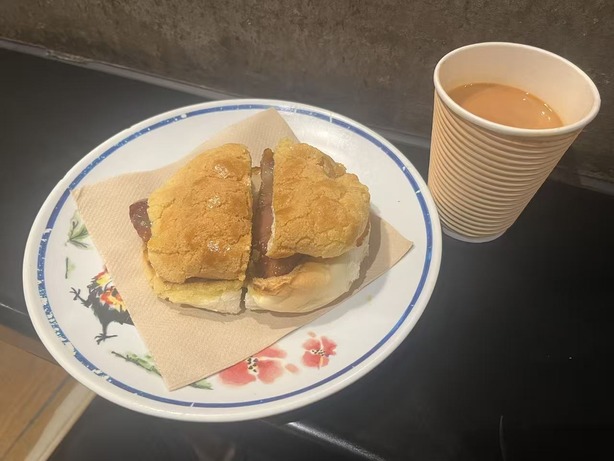College Admissions Guide
“Pursue excellence, and success will chase you… pants down.” — Rancho, 3 Idiots (2009)
What matters?
Before applying to college, you should have an idea of what you want and what is possible. I’m not sure who is reading this so I will try to make it general for each year in high school.
I am operating under the assumption that the reader wishes to go to the most prestigious institution that they are capable of going to. Of course, this is all part of the game of college played by society. Moving past all of that, here are the topics covered:
- Things to do before applying (by grade)
- Getting letters of recommendation
- Writing essays
Rule 1: Remember the Human
Remember that the admissions staff are people too.
Students sometimes forget that college admissions is simply the student writing things on paper and handing it to admissions officers (AOs) who read and report based on it.
With this in mind, there are certain priorities that can be set when writing an application.
Stacking the Brag Sheet
Every student applies using their stats, which are things including clubs, volunteering, sports, competitions, awards, honors, research, projects, etc.
The main goal is to max out the stats so that you have at least ten things to put on a list. Most people who get into the better schools do not have ten things of the same quality, maybe just a few that are really good.
Being a bit more of a specialist may be beneficial, since it is easier to be great at two or three things than seven.
There are only a few people who are perfect at everything. If you are such a person, no need to keep reading, just keep doing everything perfect.
Time Management
It’s up to you how much time you want to spend on leisure and how much you want to spend on work during high school.
Beginning with an average week of 168 hours, taking away 56 hours of sleep, 21 hours of eating and using the bathroom (separately, of course), we are left with 91 hours in a week, setting aside 40 hours of school per week (we will return to it later), we have 51 hours available for work and play.
Before deciding how to cut it up, let’s say that every normal person takes breaks from working for at least one hour a day, leaving us with 44 hours in total for work.
Reporting Hours
On your college application, you must list the hours you spend on each activity. If the total sum goes over or close to 40, it is extremely suspicious.
If you are actually spending that much time, then you may want to consider underreporting to avoid doubt. On the theme of remembering the person reading is a human, there’s no point in overreporting because no AO is actively reading for the number of hours spent doing something.
Time Management Cont.
Personally, I like to spend an average of about 2-3 three hours a day doing things for fun. If you have something that appears productive that you also find fun (or vice versa), such as drawing or playing an instrument, it can be an efficient way to spend time.
However, from my experience writing about guitar and my YouTube channel, the admissions staff at Caltech really did not care about either one. Hobbies are more like something in the background of your personality from the perspective of an AO.
That doesn’t mean you shouldn’t have any though, because if Bob Ross didn’t cover the background with Phthalo blue before starting, it would look really weird.
Being a bit quirky or unconventional in your hobbies can help make the reading experience more enjoyable for the AOs. Good applications will actually get shared around the admissions office because it is a lot of fun to read a good story.
Anyway, say you spend 2 hours a day on fun things and you are left with 37 hours a week to do work/extracurriculars.
Studying
Obviously, some time is required to do HW and study for classes outside of school. It depends on your workload, but I remember never really spending more than 2-3 hours a day on HW unless I had a project. So, let’s say 10 hours a week on HW, and maybe 2 hours studying?
Everyone spends different amounts of time studying, but as long as you can stay in the top few percent of your grade, it’s enough.
By the way, enough is better than perfect, there is no point in maxing out your grades if it means you must spend less time on extracurriculars.
Anyway, we are now left with 25 hours.
Regarding studying for standardized testing (SAT, ACT), many institutions are moving away from test scores, but they still play a partial role in admissions for many schools. Just get to at least the average of the school you are applying to for your demographic, or whenever you reach the point of diminishing returns.
SAT/ACT Tips
Other than doing practice problem sets, you should also learn the actual concepts the tests are testing. There are so many online guides and tips that people don’t look at. Also, for the reading section (where most STEM people lose points), I recommend reading and taking notes on the essays of E.B. White or just any old essays in general to get better at reading comprehension.
Khan Academy has good practice problems for the SAT and it gives explanations for the correct answer after each question. Spend an amount of time that suits you personally.
Assuming you do a full practice exam worth of problems every month (3 hours), and 1 hour reviewing the mistakes, it should be an average of 1 hour per week, leaving us with 24 hours to do clubs.
Clubs
Most schools do care about leadership, so I would recommend joining a few clubs early on that you enjoy, or founding a club you are interested in. Generally, clubs with the following traits are beneficial:
- Competition-based (math, debate, various olympiads)
- Creative (hackathon, art, music, newspaper)
- Outreach with other groups (charity, volunteer, education)
- Project-based (research, graphic design, film)
- Collaborative (orchestra, robotics, esports)
Of course, there can be clubs that fall into many categories, but the point is having something to show off at the end. Although, that’s a lie because the actual point is making stuff and doing stuff. It doesn’t really matter what you do as long as you like it and it’s cool.
Consistency
You should also make sure to join estabished clubs earlier on to demonstrate your commitment and consistency over four years to one thing. Also, it makes you more likely to get a leadership position in the club.
Balance
In constrast, if you try to do too much, it could actually harm your performance overall. For example, I’ve always been interested in writing for the school newspaper, but never joined because it requires taking a one-semester journalism course, which seemed very boring.
However, if I actually joined, it would take a really long time to actually write articles, which would distract me from my STEM-related pursuits.
Independent Projects/Portfolio
Part of the problem with collaborative work is that the individual contribution is unclear. Luckily, there are a lot of random independent projects which can be very valuable.
If you are able to do independent projects with robotics or programming, such as building a sensor of sorts or making a web application, it can be great for your maker portfolio, which is an optional submission that some schools look at to further distinguish applicants.
Also, if you are doing scientific research with a professor, you should aim to publish a paper by the end so that there is some result that admissions can see.
Application Hierarchy
Stepping back for a moment, we have discussed test scores, grades, and extracurriculars. Grades and test scores can only get your foot in the door. American college admissions are holistic, which is different from the rest of the world.
In holistic admissions, extracurriculars have much more weight than basic academics. However, what is most important is how well the student represents the values of the university they are applying to.
This is accomplished mainly through a perception of personality based on recommendation letters from teachers and short answers/essays. So, the actual ranking of factors in a college app is:
- Letters
- Essays
- ECs/Activities/Awards/Portfolio
- Grades
- Standardized test scores
Note that it is still important to have good grades as a foundation, but in terms of distinguishing candidates, letters and essays are what really matter.
Useless Information
As a result, many things become redundant as you go up the list while creating an application. For example, there is no point in mentioning “Top X% of the grade” as an honor if your grades are already very good.
Another example is the National Merit Scholarship for performing well on the PSAT; it is useless because it is obvious how smart a student is based on other things.
Students also write too much about their activities and honors in their essays. Essays are a chance to show off the values that a student shares with the school rather than to flex prestige.
The Importance of Letters
Receiving an outstanding letter of recommendation from a teacher is a straight-forward yet difficult process: the teacher must like you.
Impressions
No one has an accurate picture of themselves and everyone has motives for portraying themselves differently than how they actually behave.
Actual behavior is hard to define, but it can be generally described as the average of others’ impression of you.
So, it doesn’t matter how much you brag about yourself on your essays if your teachers provide a contradictory picture. So, that is why letters matter so much more than everything else on your application.
The Act of Getting Letters
Basically, you just have to put in a lot of effort in class, either at or beyond the boundary of what is expected.
If you are a manipulative person, think of it as tricking teachers into thinking positively of you by pretending to be a model student:
- handing in homework on time
- participating in class discussions
- resolving disagreements in group projects
- researching topics outside of class
- helping teach in other classes, etc.
Once you have perfected your act over four years, you will hopefully have very strong recommendation letters from a few teachers!
Make sure to really stick it to them by keeping in touch and telling them about how you are doing in college and bringing back thoughtful gifts every time you visit.
However, if you don’t think you have the heart to trick your teachers like that, I guess you just need to work really hard to be a model student.
Writing Essays
Figuring out how easy it is to answer a college’s supplemental essay questions is a good way to gauge how well you actually fit the school’s character.
For instance, Caltech has a required supplemental asking students to describe two experiences in STEM which triggered curiosity and demonstrate resilience. If one cannot immediately think of two experiences, one should consider other schools.
Purpose
The message you want to get across in your essays is that the school should accept you because you are the best fit for the school.
This problem obviously has many layers, but colleges ask two question on the top layer:
- Why our school specifically?
- How do you match our school values?
Matching values
This is probably the most important thing to focus on in the entire application and everything should be built around it. Whenever you make an editing choice, it should be based on matching values.
Generally, it is possible to guess some general words that the school will score you on (leadership, collaboration, perseverance, etc.). Sometimes, the school will list them out somewhere on their website.
Why our school?
To answer this question, do a lot of research on courses, clubs, professors, etc. at the school and make sure to mention them in your essay describing why you want to major whatever you’re applying for.
Also make sure to add even more information when you go to your interview (if the school has interviews).
Style
It is actually very hard to contain a good answer to any particular question within a few hundred words.
So, a major part of the editing process is cutting out unnecessary sentences.
Also, use direct speech instead of indirect speech because it saves words.
A great format is telling a different story in each answer which has a good lesson you learned at the end.
Never say that your story taught you about whatever the question is asking, show it implicitly using the story.
Tone
Appear as genuine as possible, assuming you have a good personality. If you have a bad personality, please don’t follow the advice below because I hope you don’t get in. Alternatively, keep reading, subscribe on YouTube, follow on Spotify and Tiktok, and keep pretending to be a good person.
A major mistake I see is students bragging pointlessly when they describe their achievements. For example, don’t say that you attended a “selective summer research program,” just say the name and go straight to your story.
Also, using fancy words for no reason is phony and detracts from what might otherwise be a genuine image. My chemistry teacher once noted that one of his students had a really good essay until it was given to a graduate at some elite university and random fancy words were inserted.
Interview
I’m not actually sure how important the interviews are (I did not get into the schools where I got interviews), but definitely keep demonstrating interest and try to talk about interesting things with the interviewer.
You should prepare thoughtful questions beyond the basic stuff. Using basic questions, such as, “Is the school more collaborative or competitive?” is a great way to get rejected.
Tom News Rankings (Irrelevant)
I was mostly rating the interviewers, so here are my 2023 college rankings even though it is not relevant to the post:
- Stanford
- Princeton
- Harvard
Anyway, who you get is a bit of a tossup, but it depends where you live. In a upper-middle suburb, you’re just gonna get a bunch of finance dads. Maybe the solution is talking stocks: “Should I buy Uber or Lyft?”
I would have made my application fee back too.
Conclusion
Ultimately, other than trying to achieve the most stuff possible before senior year, remember to consider the priorities of the different components of your application as well as the main purposes of your writing.






Leave a comment